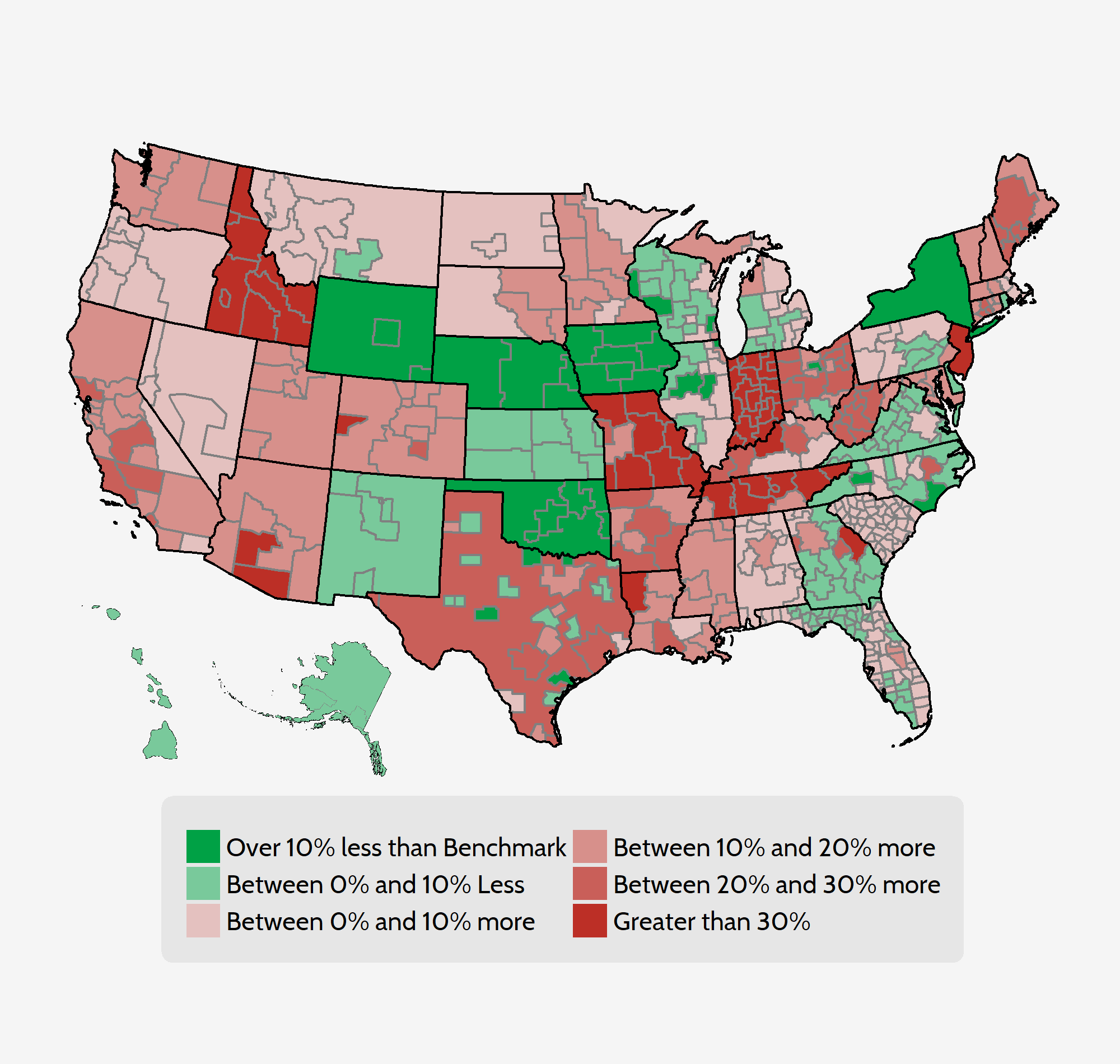Weekly Checkup
January 18, 2019
“Medicare for All” Hitting the Brakes?
One prominent theme of the 2018 campaign was “Medicare for all.” Now, what exactly Medicare for all means may not be clear, but the idea resonated with progressive voters. It seemed a foregone conclusion that the new House majority would fulfill their campaign promises and push the issue to the front of the policy debate. It’s possible, however, the conventional wisdom is wrong.
One notable data point was Wednesday’s about-face by Rep. Anna Eshoo, the incoming chair of Energy and Commerce’s Health Subcommittee. First, The Hill reported Chairman Eshoo said she would move quickly to hold hearings on Medicare for all. Then, Politico reported she had reversed course, saying those hearings would only happen after many other important policy matters were addressed if there was an opportunity. Why the change?
The issue is fraught with peril for the House majority. For one thing, you could throw a dart blindfolded on Capitol Hill right now and hit a Medicare for all/Medicare buy-in/public option/single-payer proposal—most of them lacking detail. There are myriad variations on the theme, and ample disagreement among supporters as to what they’re talking about. Democratic leaders are likely loathe to tackle an issue that could fracture their caucus.
Even with agreement on the general “Medicare” branding strategy, the complexities of health care reform could make Democrats slow to move decisively toward one proposal. Political messaging will be shaped by the details of the proposals, and the details make the proposition tricky politically—see as evidence the popularity of the “repeal and replace” slogan on the right versus the success of each proposal the GOP considered. AAF previously detailed that most proposals branded with the “Medicare” moniker aren’t really about Medicare at all. Even the proposals that do touch Medicare can’t accurately be called Medicare for all. Senator Bernie Sanders would eliminate Medicare altogether (and, as an aside, also outlaw private insurance), and Medicare buy-in proposals all claim that they would be paid for fully by enrollee premiums, undermining the appeal of the buy-in option.
Polls are mixed, but they generally do not support a hard shift to the left on health care. Polling on single-payer/Medicare expansion suggests Americans are both unhappy with the current system and uncomfortable with the idea of single-payer. AAF polling from 2018 found that voters opposed a single-payer system 51 percent to 41 percent. A 10-point gap isn’t huge, but intensity of feeling is against single-payer supporters, as only 28 percent strongly favor a single-payer system while 43 percent strongly oppose. Further, 55 percent of independent voters were opposed, and the numbers only get worse for supporters the more the details are explained.
The upcoming presidential race could also slow any congressional movement on Medicare for all. Congressional leaders are probably reluctant to get ahead of their eventual nominee, who will have a huge say on where the party ultimately ends up.
Medicare is a generally well-liked program, so it’s easy to see why supporters of national government-run health care would embrace the name. But wrapping these proposals in the language of Medicare is also an admission of their potential unpopularity. Perhaps it shouldn’t be surprising if the race toward a “Medicare for all” government-run health system is a little slower out of the gates than expected.
Chart Review
Reacting to the discontinuation of Cost Sharing Reduction payments in 2017, many insurers on the Affordable Care Act’s (ACA) individual market exchanges increased only Silver premiums for 2019, AAF’s analysis of 2019 ACA premiums finds. As a result of this “Silver Loading,” there are many areas where Gold plans are cheaper than the benchmark plan, as the map below shows. In 2019, of the 501 rating areas, 139 rating areas feature at least one Gold plan that costs less than the benchmark Silver plan.
Lowest Gold Premiums Compared with Benchmarks

Worth a Look
Modern Healthcare: CMS wants to cut ACA exchange fees, end silver-loading
New York Times: F.D.A. Panel Splits on Whether to Approve New Diabetes Drug










